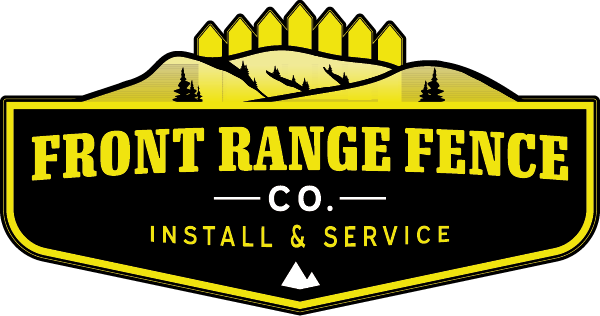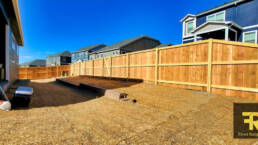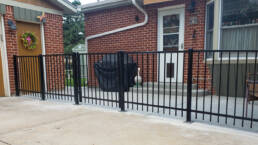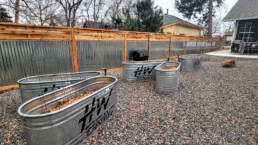Residential fences not only enhance the curb appeal of your home but also provide security, privacy, and boundary definition. When it comes to installing a new fence, homeowners often find themselves at a crossroads – should they embark on a do-it-yourself (DIY) project or hire a professional fence installer? This decision carries significant weight as it directly impacts your property’s aesthetics, functionality, and, ultimately, its value.
The Importance of Residential Fences
Residential fences serve as the first line of defense, protecting your family and property from unwanted intruders and prying eyes. They create a safe haven for your children and pets to play without fear of straying too far. Fences also define your property’s boundaries, preventing disputes with neighbors and ensuring a clear understanding of property lines. Moreover, they contribute to the overall aesthetic of your home, adding character and charm to your landscape.
The Decision-Making Dilemma: DIY or Hire a Pro?
As you contemplate the installation of a residential fence for your Denver, Colorado property, you’ll likely face the dilemma of whether to take the DIY route or enlist the services of a professional fence installer. This decision isn’t one to be taken lightly; it involves careful consideration of various factors, each of which has its own set of advantages and drawbacks.
DIY Fence Installation
Pros
- Cost Savings: One of the most appealing aspects of taking the DIY approach to fence installation is the potential for significant cost savings. By handling the project yourself, you can eliminate labor expenses. This means that a DIY fence can be more budget-friendly, especially if you’re working with limited funds.
- Sense of Accomplishment: Completing a fence installation on your own can be a deeply rewarding experience. It allows you to take an active role in improving your property, fostering a sense of accomplishment and pride in your home improvement skills. The satisfaction of looking at your completed fence and knowing that you built it yourself can be immensely gratifying.
- Customization: With a DIY project, you have full creative control over the design and materials used for your fence. This means you can craft a fence that perfectly suits your vision and needs. Whether you want a rustic wooden fence or a modern metal one, you have the freedom to choose the materials, style, and dimensions that align with your preferences.
Cons
- Time-Consuming: DIY fence installation can be time-intensive, particularly if you lack prior experience. It requires careful planning, digging, setting posts, leveling, and attaching panels or boards. Depending on the size and complexity of your project, it may take several weekends or even longer to complete.
- Skill and Knowledge Requirements: Building a fence may seem straightforward, but it demands specific skills and knowledge. Inexperienced DIYers may struggle with critical aspects of installation, such as ensuring proper post alignment, securing panels without gaps, and maintaining structural integrity. Mistakes in these areas can lead to an unstable and less durable fence.
- Potential Errors: DIY projects come with the inherent risk of errors. Without the expertise of a professional, you may encounter issues like uneven panels, unstable posts, or improper alignment. These errors can compromise the functionality and aesthetics of your fence, ultimately requiring costly repairs or replacements.
It’s important to approach a DIY fence installation with realistic expectations and a commitment to acquiring the necessary skills and knowledge. While it can be a cost-effective and personally fulfilling endeavor, it also demands careful planning and attention to detail to ensure a successful outcome. If you’re uncertain about your abilities or prefer a more efficient and reliable installation, you may want to explore the option of hiring a professional fence installer.
Factors Influencing Your Decision
When it comes to deciding between a DIY fence installation and hiring a professional, several critical factors should guide your choice. Each of these factors plays a significant role in determining the most suitable approach for your residential fence project. Let’s explore these factors in greater detail:
Budget
Your budget is a fundamental consideration. Determine how much you’re willing and able to invest in your fence project. Consider not only the initial costs but also potential long-term expenses. Here’s how budget considerations come into play:
- DIY: DIY projects often offer cost savings on labor, making them more budget-friendly upfront. However, ensure you have a clear budget that accounts for materials, tools, and any unexpected expenses that may arise during the project.
- Professional: Hiring a professional fence installer may come with a higher initial cost due to labor and expertise. However, this expense often includes quality materials and workmanship that can lead to long-term savings by reducing maintenance and repair costs.
Time Availability
Evaluate how much time you can dedicate to your fence installation project. Consider your work schedule, family commitments, and other responsibilities. Time constraints can influence your decision as follows:
- DIY: DIY projects can be time-consuming, especially if you’re new to fence installation. Ensure you have the time and patience to complete the project without rushing, as rushed work can result in errors.
- Professional: Hiring a professional can save you considerable time. They are experienced and efficient, completing the job in a fraction of the time it might take as a DIY project.
Skill Level
Assess your own skills and experience in fence installation. Your skill level can significantly impact the success of your project:
- DIY: If you have prior experience or are confident in your ability to learn and execute the necessary skills, DIY may be a viable option. However, be honest about your capabilities, as mistakes can be costly.
- Professional: Professionals bring expertise and experience to the table. They have the skills and knowledge to handle various fence materials and designs, ensuring a high-quality result.
Project Complexity
Consider the complexity of your fence installation project. Some designs and materials are more straightforward, while others require specialized skills and equipment:
- DIY: Simple fence designs and materials may be suitable for a DIY project. However, if your project involves complex designs, slopes, or unique features, it may be best to consult a professional.
- Professional: Complex projects with intricate designs, challenging terrain, or specialized requirements benefit from the expertise of a professional. They can ensure that the fence is installed correctly and functions as intended.
Long-Term Goals
Think about your long-term goals and how your fence fits into them:
- DIY: If you plan to stay in your home for an extended period and have the time and skills to invest, a DIY fence project can be personally rewarding. It allows you to customize your property to your liking.
- Professional: If you’re considering selling your home in the near future, a professionally installed fence can enhance your property’s value and appeal to potential buyers. Professional installations often come with warranties, providing peace of mind regarding long-term durability.
By carefully assessing these factors and weighing their significance in your specific situation, you can make an informed decision regarding whether to embark on a DIY fence installation or hire a professional. Keep in mind that Front Range Fence in Denver, Colorado, is here to support you in either choice, ensuring that your residential fence project meets your goals and expectations.
Making the Right Choice
Selecting the right path for your fence project is akin to laying the foundation for your property’s future. Here are some key takeaways to guide your decision:
- Budget: If cost savings are a top priority and you have the necessary skills, DIY can be a budget-friendly option. However, ensure you budget for materials and tools adequately.
- Time: Consider your availability and willingness to commit the time required for a DIY project. DIY installations often demand more time, so assess whether your schedule allows for it.
- Skill Level: Be realistic about your skills and confidence in fence installation. Mistakes can be costly, so if you’re unsure, it may be wise to consult a professional.
- Project Complexity: The complexity of your project should influence your decision. While simple designs may be manageable for DIYers, complex projects benefit from professional expertise.
- Long-Term Goals: Think about your future plans. If you’re looking to enhance your property’s value for resale, a professionally installed fence may be a strategic investment.
Whichever path you choose, remember that Front Range Fence in Denver, Colorado, is here to support your vision. We provide high-quality materials, expert advice, and professional installation services to ensure your fence not only meets but exceeds your expectations.
In the end, what matters most is that your residential fence fulfills its intended purpose—whether that’s safeguarding your family, enhancing your home’s aesthetics, or delineating your property boundaries. Your fence should provide peace of mind, security, and satisfaction, reflecting your personal touch and attention to detail.
No matter your choice, Front Range Fence is your trusted partner in achieving the perfect fence solution for your Denver, Colorado property. We are committed to helping you make the right choice, guiding you through the decision-making process, and delivering a fence that enhances your home and lifestyle. Your satisfaction is our priority, and your fence project is our expertise.

Contact us today to discuss your fencing needs and schedule an onsite estimate.
Let us help you create a secure, beautiful, and enduring fencing solution that complements your property and exceeds your expectations. Experience the difference of our top-notch fencing services and join our list of satisfied customers.
Like this article? Spread the word!
Related Posts
May 20, 2024
From Classic to Contemporary: Exploring Trendy Designs for Custom Residential Fences
Explore trendy residential fence designs in Denver, from classic to contemporary. Learn how Front Range Fence can…
0 Comments14 Minutes
April 23, 2024
The Ultimate Guide to Enhancing Your Home with a Beautiful Residential Fence
Discover how to enhance your Denver area home with a beautiful residential fence. Our guide covers materials, design,…
0 Comments22 Minutes
March 9, 2024
Creating Privacy with Style: Custom Fence Design Solutions for Residential Properties
Enhance privacy without compromising style with Front Range Fence's custom design solutions. Serving the Denver area,…
0 Comments10 Minutes



